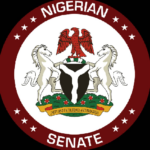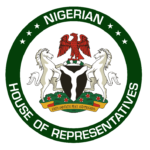A fresh controversy is looming at the National Assembly as the two chambers of the parliament yesterday approved different versions of the Electoral Act (Amendment) Bill, 2021.
While the Senate provided the re-amended bill for direct, indirect primaries or consensus as the procedure for the nomination of candidates by political parties for various elective positions, the House only provided direct and indirect mode.
- NIGERIA DAILY : The Role Religious Leaders Should Play In Nigerian Politics
- 2023: I’m capable but not desperate to lead Nigeria — Orji Kalu
President Muhammadu Buhari had declined assent to the draft law over the provision of direct primaries as the sole mode of conducting political parties’ primaries.
The bill earlier passed by the National Assembly on November 18, 2021, states that “a political party seeking to nominate candidates for elections under this bill shall hold direct primaries for aspirants to all elective positions, which shall be monitored by the Commission (INEC).”
The president had said he would assent the electoral bill if the lawmakers provided options for the conduct of political parties’ primaries.
At the Senate, the amendment followed a motion for the re-committal of the bill to the Committee of the Whole by Senate Leader Yahaya Abdullahi (APC, Kebbi) during plenary on Wednesday.
The Red Chamber, in a motion for re-committal to the Committee of the Whole, amended Clause 84(2) of the bill to include direct, indirect primaries or consensus as methods of nominating candidates for elective positions.
Senator Abdullahi, in his presentation, explained that the motion for re-committal of the bill to the Committee on the Whole was against the backdrop of the need to address the observation by President Buhari over the mode of conducting party primaries.
At the House of Representatives, the lawmakers passed the bill with the provision of direct and indirect primaries. In their version, there was no consensus.
Its passage followed the introduction of the bill after a motion by the Chairman, House Committee on Rules and Business, Abubakar Hassan Fulata (APC, Jigawa).
Unlike at the Senate, the House of Representatives provided only two options – direct and indirect mode of primaries.
Speaking on the amendment after the House reverted to plenary, the Speaker, Femi Gbajabiamila said; “For emphasis sake, what was considered and adopted by the House, was only one clause and that was Clause 84 (2), and that was the clause that has to do with direct primaries and indirect primaries. No other clause in the electoral act amendment was considered or adopted.
“So, the electoral act amendment that was sent “ab initio”, initially to the president remains as it is. The only change is 84 (2) wherein we have now included in addition, indirect primaries” which was not what was brought to us by the electoral committee”.
Meanwhile, 13 of the nation’s leading Civil Society Organisations (CSOs) have urged the Senate to drop the introduction of consensus as a mode for the nomination of candidates in the Electoral Bill 2021 amendment
The CSOs, in a statement on Wednesday, said the Senate’s introduction of consensus as a mode for the nomination of candidates in the Electoral Bill 2021 was unacceptable.
The CSOs are Yiaga Africa, International Press Centre (IPC), Centre for Citizens with Disability (CCD), The Albino Foundation, CLEEN Foundation, Institute for Media and Society (IMS) and Nigerian Women Trust Fund (NWTF).
Others are Premium Times Centre for Investigative Journalism (PTCIJ), Partners for Electoral Reform (PER), Civil Society Legislative Advocacy Centre (CISLAC), Women Advocates Research and Documentation Centre (WARDC), Nigeria Network of Non-Governmental Organizations (NNNGO) and Inclusive Friends Association (IFA).
“We reject the decision of the Senate to introduce a completely new mode of “consensus” as a procedure for candidates’ nomination. The consensus mode is antithetical to democratic principles and will result in the subversion of popular will.”
The CSOs said with this development, a harmonization committee will now have to be constituted by the leadership of the National Assembly to harmonize the divergent positions of both chambers thereby delaying the speedy conclusion of the process.
By Abdullateef Salau, Balarabe Alkassim & Abbas Jimoh

 Join Daily Trust WhatsApp Community For Quick Access To News and Happenings Around You.
Join Daily Trust WhatsApp Community For Quick Access To News and Happenings Around You.


